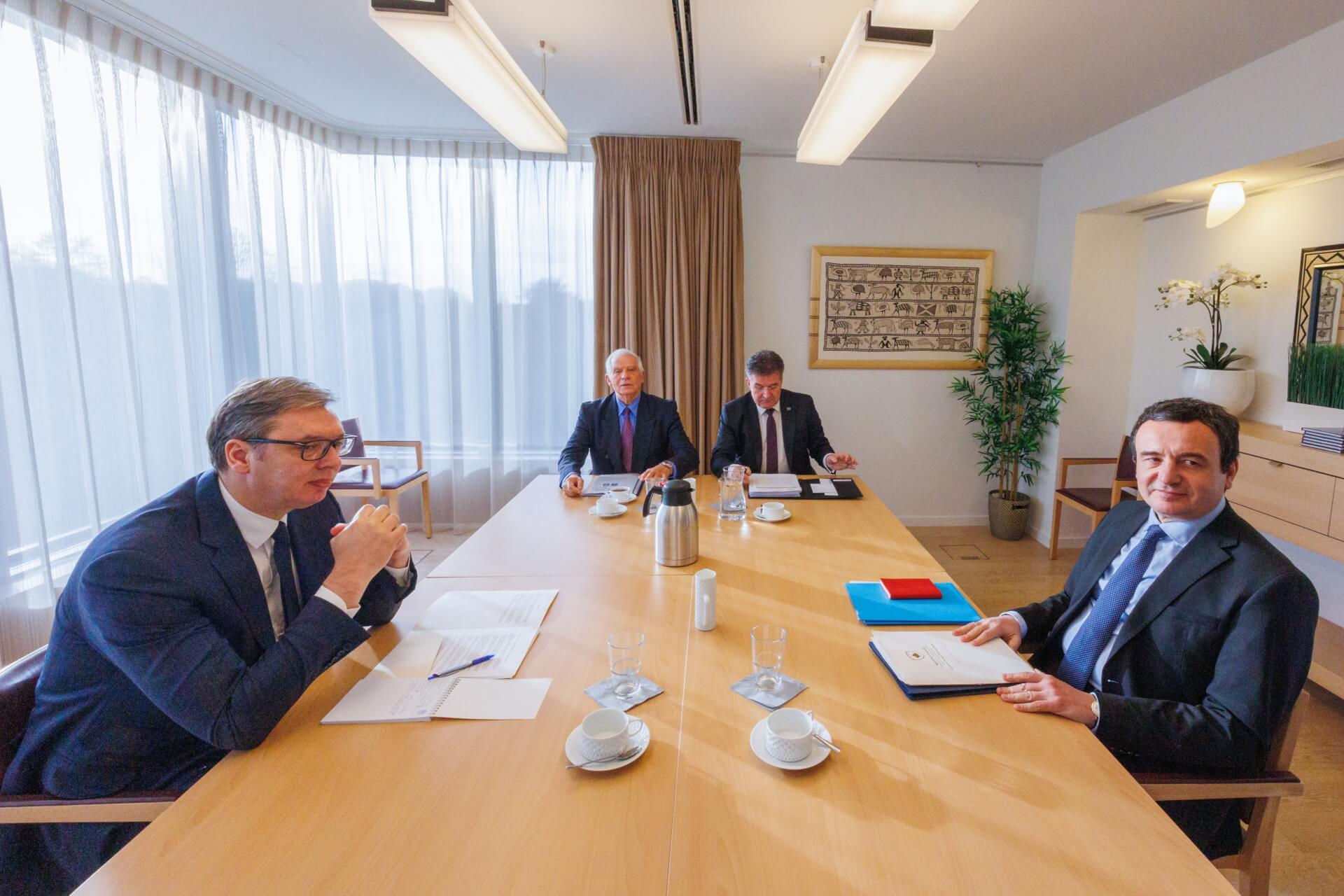Following eight-hour-long talks in Brussels on Monday, European Union (EU) foreign policy chief Josep Borrell revealed that Kosovo had rejected the bloc’s proposal to resolve the ongoing license plate issue with Serbia, despite Belgrade agreeing to the plan.
“I think that there is an important responsibility [on the side of both leaders] for the failure of the talks today and for any escalation and violence that might occur on the ground in the following days,” he asserted, adding that he would inform his fellow European allies about the “behaviour of the different parties and the lack of respect for their international legal obligations… this goes particularly for Kosovo.”
The EU’s @JosepBorrellF using sharper language w/ the govt of Kosovo for not wanting to further ethnically fragment their country than any EU official has used vis the near-autocratic, Kremlin-aligned, genocide-denying, irredentist Vucic regime in Serbia. pic.twitter.com/XhonNdCwVU
— Jasmin Mujanović (@JasminMuj) November 21, 2022
Though he acknowledged that it “sends a very negative political signal,” Borrell urged both parties to “show leadership and the will to resolve their disputes and taking the normalisation of relations forward, so that they can advance on their respective European paths.”
Kosovan Prime Minister (PM) Albin Kurti blamed the EU for the failure of talks, saying, “We cannot turn ourselves into state leaders that are dealing only with car plates and are not talking about how to normalise their relations.”
Nevertheless, he noted that he is willing to conduct further discussions to normalise relations between Kosovo and Serbia instead of just resolving one issue.
The main reaction to his statement came from Kosovo president Vjosa Osmani via a FB post, saying that Borrell has “proven himself to be a biased mediator” and listed 15 agreements and parts of agreements signed in Brussels that Serbia hasn’t implemented yet.
— Una Hajdari (@UnaHajdari) November 21, 2022
However, EU foreign affairs spokesperson Peter Stano asserted that “any claims that the EU is giving up on its proposal on normalisation of relations between Kosovo and Serbia, which is supported by Germany, France, and the United States (US), are untrue.”
“There cannot be any negotiations on normalisation of relations with a threat of violence present,” he stressed.
Borrell also called on Pristina to “immediately suspend further stages” of the re-registration of vehicles in north Kosovo and urged Belgrade to stop “issuing new licence plates with Kosovo cities’ denominations, including KM plates.”
“This would allow space and time for the parties to look for a sustainable solution to the licence plates issue, in the context of the normalisation of relations which is our most important objective,” Borrell argued.
because Brussels has always tried to accommodate President Vucic and is putting pressure on Kosovo as a supposedly weaker partner. Serbia does not comply with EU sanctions against Russia and is flirting with China, which remains without consequences. Kosovo is the only Balkan...
— Stephan Israel (@StephanIsrael) November 21, 2022
Meanwhile, Serbian President Aleksandar Vučić told reporters: “The Serbian side was absolutely constructive, we accepted tens of updates [to the treaty], but the Albanian side refused to accept anything even for a second, they always wanted to add something that is impossible.”
He warned that the “situation is very difficult and it is on the verge of conflict” and underscored that Belgrade “will do everything to preserve peace.”
While addressing the nation later on Monday, Vučić admitted that Serbia “will respect what was agreed and will not issue new license plates.” However, he also cautioned: “We have a difficult period ahead of us from tomorrow, many sleepless nights are ahead of us. We have to be worried, but there is no place to panic.”
I thank Ambassador Hovenier for his commitment and engagement. I accept his request for a 48-hour postponement on imposition of fines for illegal ‘KM’ (and other) car plates. I am happy to work with the US and the EU to find a solution during the next two days. https://t.co/iXq1SCM8JL
— Albin Kurti (@albinkurti) November 21, 2022
The US Department of State expressed their disappointment at the failed discussions and called on Kurti and Vučić “to make concessions to ensure that we do not jeopardise decades of hard-won peace in an already fragile region.”
In this regard, the US requested Kosovo to postpone the imposition of fines by another 48 hours in order to allow Brussels and Washington to “further engage the parties to find a solution.” Kurti accepted the proposal, saying he was “happy” to work with them.
Earlier this month, tensions erupted in northern Kosovo after Kurti announced the gradual implementation of Kosovan license plates, with warnings until 21 November, fines for the next two months, and finally a complete ban from 21 April next year. The policy would impact about 10,000 ethnic Serbians, who consider themselves to be a part of Serbia despite Kosovo having declared its independence in 2008.
The Police Inspectorate of Kosovo suspended northern police chief Nenad Djuric over his refusal to enforce the government-mandated license plates, prompting the resignation of 10 ethnic Serbian lawmakers, 10 prosecutors, and 576 police officers in the Mitrovica region.
Min @Antonio_Tajani is on a joint mission with Min of Defence @GuidoCrosetto to Serbia and Kosovo. "We are working to ease tensions between the two countries, also thanks to the presence of our military contingent. 🇮🇹aims to be a protagonist of peace in the #WesternBalkans" https://t.co/0bSkpVqGO9
— Italy MFA (@ItalyMFA_int) November 22, 2022
In this respect, Borrell stated that the dismissal of Djuric and the resignation of various officials has “created a vacuum” where the “worst can happen.”
“I can say that we are facing the most serious, the most dangerous crisis since 2013 – of the last ten years,” he said, adding that both sides should “urgently show readiness to find a way forward to lower these tensions.”

